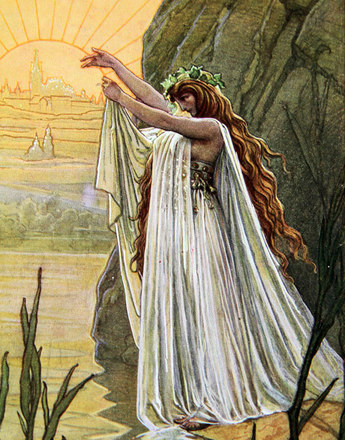The course of their evolution into the Czech nation can be seen as absolutely prototypical for the development of modern national awareness among the smaller ethnic groups in Central Europe. Here, the Czechs were pioneers in many ways.
The process of becoming a nation began very early among the Czechs, since they possessed a certain awareness of their linguistic identity. From the fifteenth to the seventeenth century the Czech language was the dominant administrative language in the Bohemian lands, but rapidly lost its significance in the course of their increasing integration into the federation of the Habsburg Monarchy. The first polemic pamphlets appeared as early as the Baroque era, inveighing the public to preserve the Czech character of the country.
The Enlightenment brought with it a scientific preoccupation with historical sources and the Czech language. However, this was not a widespread popular movement, but a kind of élite programme involving clerical academics and aristocratic patrons. The Royal Bohemian Society of Sciences was founded in 1790 in Prague as the first patrimonial institution.
This was not least a reaction to the dissolution of the last remnants of independence for the Bohemian group of lands under Maria Theresa and Joseph II. The Bohemian aristocracy, sceptical of Viennese centralism, focused on the historical roots of the country. In Bohemia they could rely on a strong identification with the region that initially included both linguistic groups – German and Czech – in the spirit of a supranational local patriotism.
But soon the concept “Bohemian” narrowed, to which every inhabitant of the country, regardless of belonging to the German or Czech linguistic group, had long felt his or her allegiance. Towards the end of the eighteenth century the “Bohemian” was increasingly defined by his or her speaking Bohemian (= Czech). This is because the Czech language does not recognise the difference introduced later in German between “Bohemian” (= inhabitant of the land) and “Czech” (= belonging to the Czech linguistic nation). The Czech term “Čech” unites both meanings, leading to the interpretation on the part of the Czechs that only Czechs could be Bohemians.
Consequently Bohemian-type local patriotism, ethnically still indifferent, was transformed into Czech linguistic patriotism. The advocates of bilingualism within the Bohemian nation were soon jostled into a minority position. Hence the statement made in 1845 by Count Josef M. Thun, a liberal member of the Bohemian aristocracy, that he was “neither Czech, nor German, but only a Bohemian” was already anachronistic by the mid-nineteenth century.
Translation: Abigail Prohaska
Hoensch, Jörg K.: Geschichte Böhmens. Von der slavischen Landnahme bis ins 20. Jahrhundert, München 1987
Křen, Jan: Dvě století střední Evropy [Zwei Jahrhunderte Mitteleuropas], Praha 2005
Rumpler, Helmut: Eine Chance für Mitteleuropa. Bürgerliche Emanzipation und Staatsverfall in der Habsburgermonarchie [Österreichische Geschichte 1804–1914, hrsg. von Herwig Wolfram], Wien 2005
-
Chapters
- The Czechs in the Habsburg Monarchy
- How Czechs evolved from Bohemians
- The Revivalists of the Nation
- Separate Ways: The Effects of the 1848 Revolution in Bohemia
- The Vectors of Czech National Identity
- The Call for Autonomy
- Hardening of the Fronts: The Czech Demand for the Bohemian Compromise
- Attempts at Solutions and Escalation: Language Conflict and Badeni Crisis
- The Czechs’ Spectrum of Parties
- The Lack of Alternatives: the Attitude of the Czechs towards the Habsburg Monarchy at the Outbreak of the War



